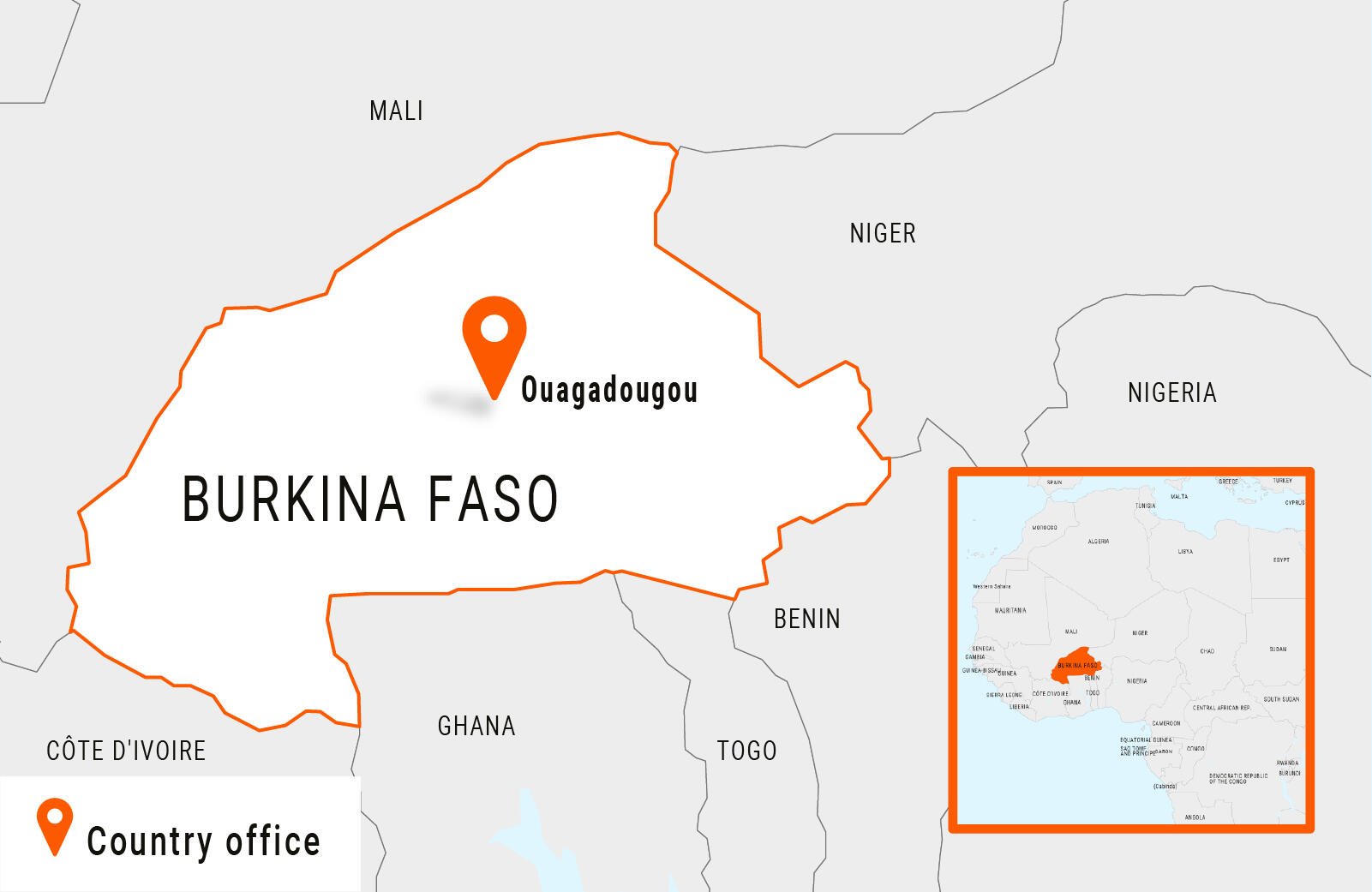This is the world’s most neglected displacement crisis, but the Norwegian Refugee Council (NRC) is working at the heart of it. We’re responding rapidly in hard-to-reach areas to the urgent need for food, clean water and shelter, as well as protecting people from violence and helping children carry on with their education.
What’s happening in Burkina Faso?
The past few years have seen recurrent attacks by armed groups across Burkina Faso, including two military takeovers just eight months apart in 2022. Dozens of towns and villages have been blockaded, and roughly one million civilians remain under siege.
At least another two million people have been forced to flee – some of them, several times over. Their lives have been shattered, their livelihoods destroyed, and they now face devastating levels of hunger and hardship.
All this unrest has disrupted infrastructure, leading to the closure of one in four schools across Burkina Faso and jeopardising the education – and futures – of over a million children.
Sadly, the situation continues to deteriorate, with mounting social tensions, ongoing brutality by armed groups and ever-increasing humanitarian needs.

Region: West Africa
Population: 23.8 million
Total displaced: 2.2 million
Refugees hosted: 38,881
This is the world’s most neglected displacement crisis, but the Norwegian Refugee Council (NRC) is working at the heart of it. We’re responding rapidly in hard-to-reach areas to the urgent need for food, clean water and shelter, as well as protecting people from violence and helping children carry on with their education.
What’s happening in Burkina Faso?
The past few years have seen recurrent attacks by armed groups across Burkina Faso, including two military takeovers just eight months apart in 2022. Dozens of towns and villages have been blockaded, and roughly one million civilians remain under siege.
At least another two million people have been forced to flee – some of them, several times over. Their lives have been shattered, their livelihoods destroyed, and they now face devastating levels of hunger and hardship.
All this unrest has disrupted infrastructure, leading to the closure of one in four schools across Burkina Faso and jeopardising the education – and futures – of over a million children.
Sadly, the situation continues to deteriorate, with mounting social tensions, ongoing brutality by armed groups and ever-increasing humanitarian needs.
Our response
We’re working with our partners in the following areas:
- Water, sanitation and hygiene – constructing solar-powered water supply systems, providing suitable sanitation for schools and communities, and working with communities to promote hygiene and prevent diseases.
- Shelter and settlements – helping to provide temporary shelter and more permanent homes, as well as essential household items like kitchen sets, bedding and mosquito nets.
- Livelihoods and food security – helping people to access land and providing them with small animals, seeds, tools and new cultivation techniques, so they can feed their families.
- Education – running campaigns to help integrate displaced children, constructing semi-permanent school blocks, repairing classrooms, helping displaced children access education, providing vital vocational teaching, and training teachers to support traumatised children through psychosocial techniques.
- Protection from violence – improving access to protection and assistance, and strengthening community safety and violence prevention.
- Information, counselling and legal assistance – helping people understand their housing, land and property rights, advocating for these rights alongside authorities, and helping people obtain the civil and identity documentation they need to attend school and receive lifesaving assistance.
Our operations
NRC office established: 2019
Areas of operation: Ouagadougou (country office), Centre North, Sahel, Boucle du Mouhoun (through local partner), East (Fada NGourma)
Country Director: Anika Krstic
Contact: bf.info@nrc.no

Our impact
In 2023, we assisted 133,387 people through our programmes in Burkina Faso:
-
32,717Education
-
16,057Livelihoods and food security
-
32,929Shelter and settlements
-
7,062Protection from violence
-
20,212Information, counselling and legal assistance
-
46,523Water, sanitation and hygiene
Note: some people received more than one type of assistance.








